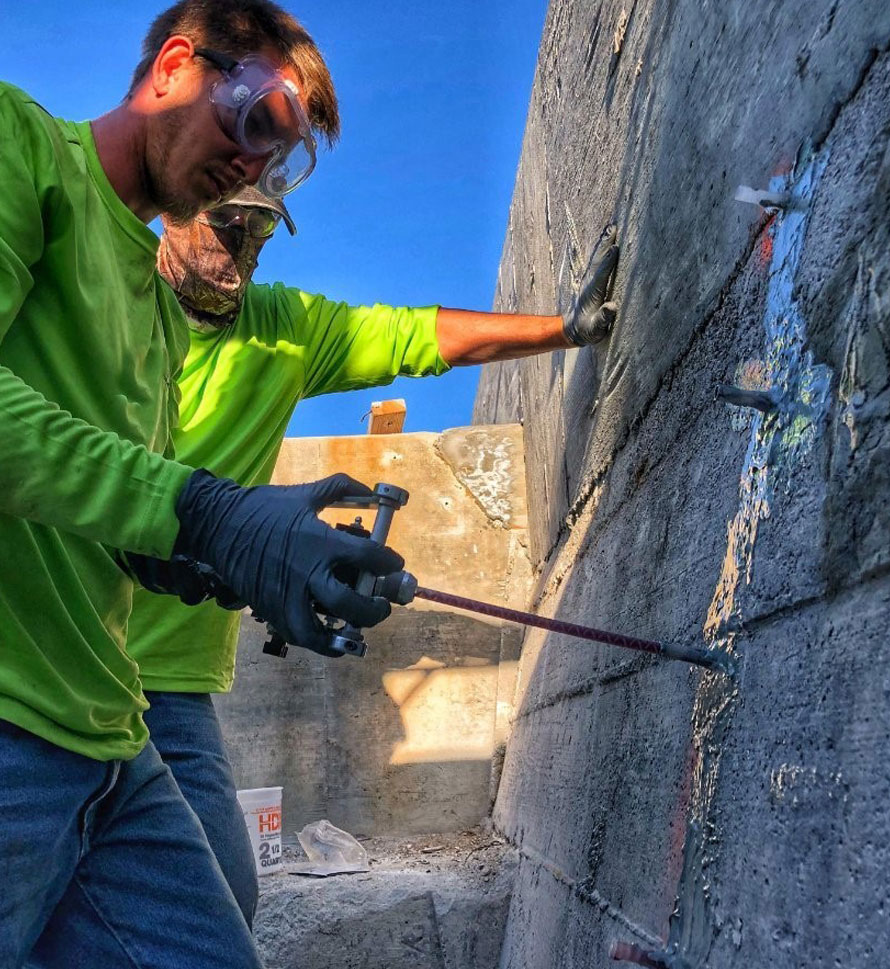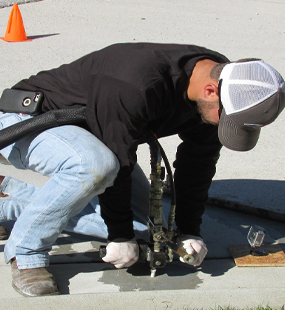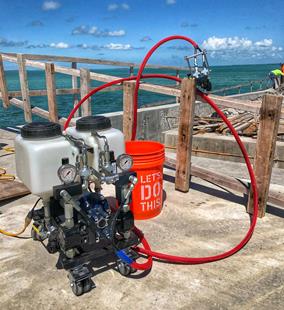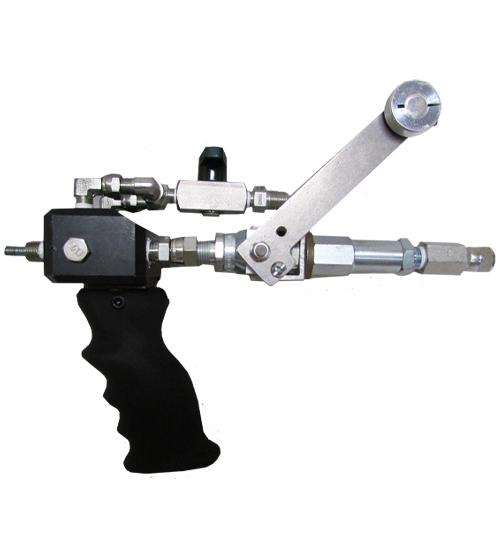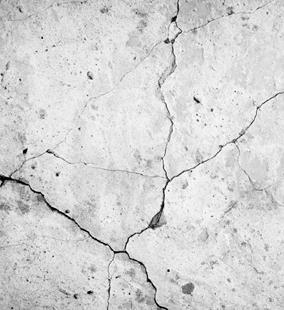
- Home
-
Solutions
-
Leak Seal
Seal leaks in concrete or masonry with crack injection and curtain grouting of our Prime Flex polyurethanes and AR acrylate resins. Prime Resins offers superior solutions for stopping leaks in every type of environment.
Read More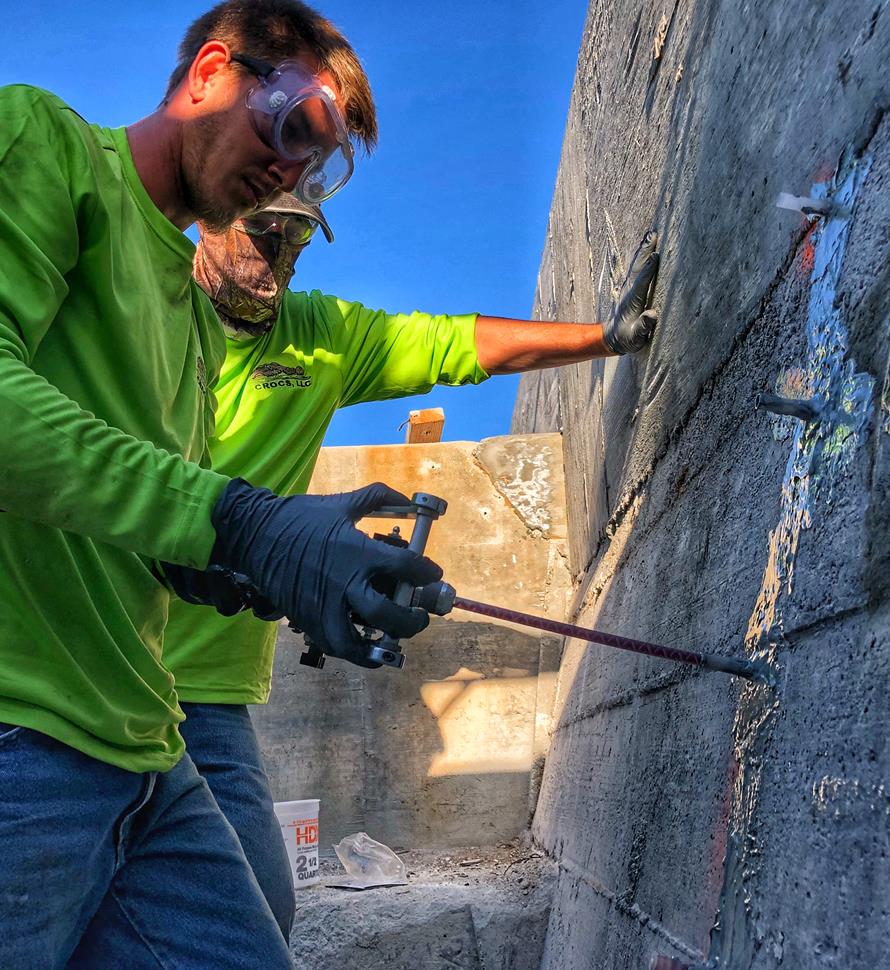
-
Soil Stabilization
Sound concrete relies on a sound substrate. Stabilize soils and fill voids with our polyurethane and acrylate foams and gels. We make chemical grouts for permeation and compaction grouting in wet and dry conditions.
Read More
-
Slab Lifting & Stabilization
Slab lifting and slab stabilization with polyurethane foams offers many advantages over traditional mudjacking. Only Precision Lift is engineered to tackle underlying issues and slab lifting with precise, dependable results.
Read More
-
Floor Repair & Joint Protection
Spalled concrete is concrete that is chipped, cracked and deteriorating. This often happens at a joint.
Read More
-
Seawall Repair
You can repair a seawall or bulkhead with Prime Resins chemical grouts: fill voids, stabilize loose soil and seal leaks at a fraction of the cost of wall replacement.
Read More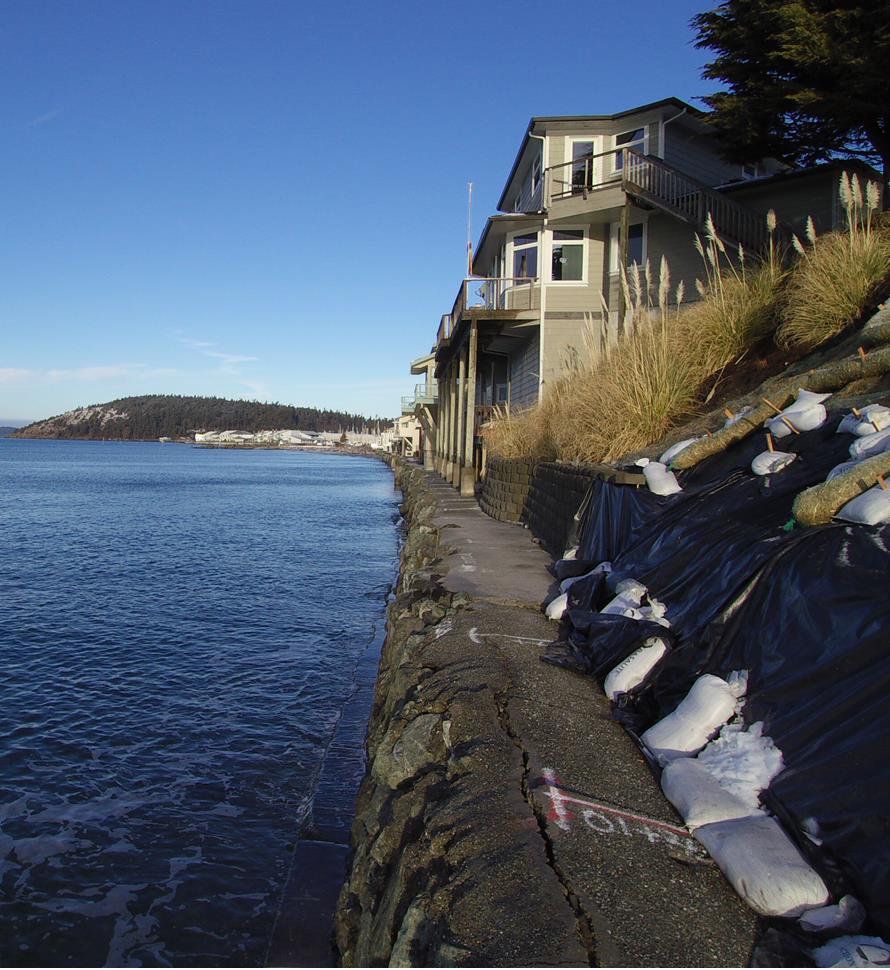
-
Structural Repair / Bonding & Anchoring
The need for crack repair in concrete structures can be caused by many different factors. Damage can occur to the concrete in situations where direct impact puts stress on one area of the structure.
Read More
-
Highway & Bridge
The geotechnical needs of DOTs and other agencies responsible for roads and bridges are vast. Issues include: Culvert repair Soil stabilization Void filling Concrete slab lifting Sinkhole remediation Slope control Slough control in tunneling
Read More
-
Waterproofing & Secondary Containment
Protecting concrete usually means shielding it from the elements of nature or from harsh manmade chemicals. But it’s not just concrete that needs such protection. Corrugated metal pipe, steel surfaces, material hoppers, rail cars and masonry all can come in contact with corrosive or abrasive materials or harsh conditions.
Read More
-
Leak Seal
-
Products
- Leak Repair
-
Soil Improvement
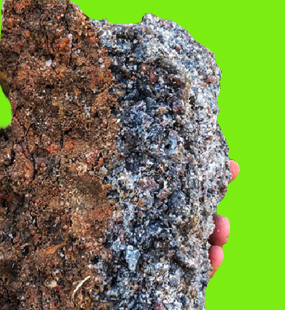
- Soil Stabilization
- Slab Lifting
- Structural Repair / Bonding & Anchoring
- Pumps
- Dispense Guns & Applicators
-
Turnkey Trailer Rig
Are you ready to hit the ground running doing concrete leveling with polyurethane foam? Prime Resins offers the industry’s best suite of products for lifting concrete as a turnkey, fully equipped trailer rig.
Read More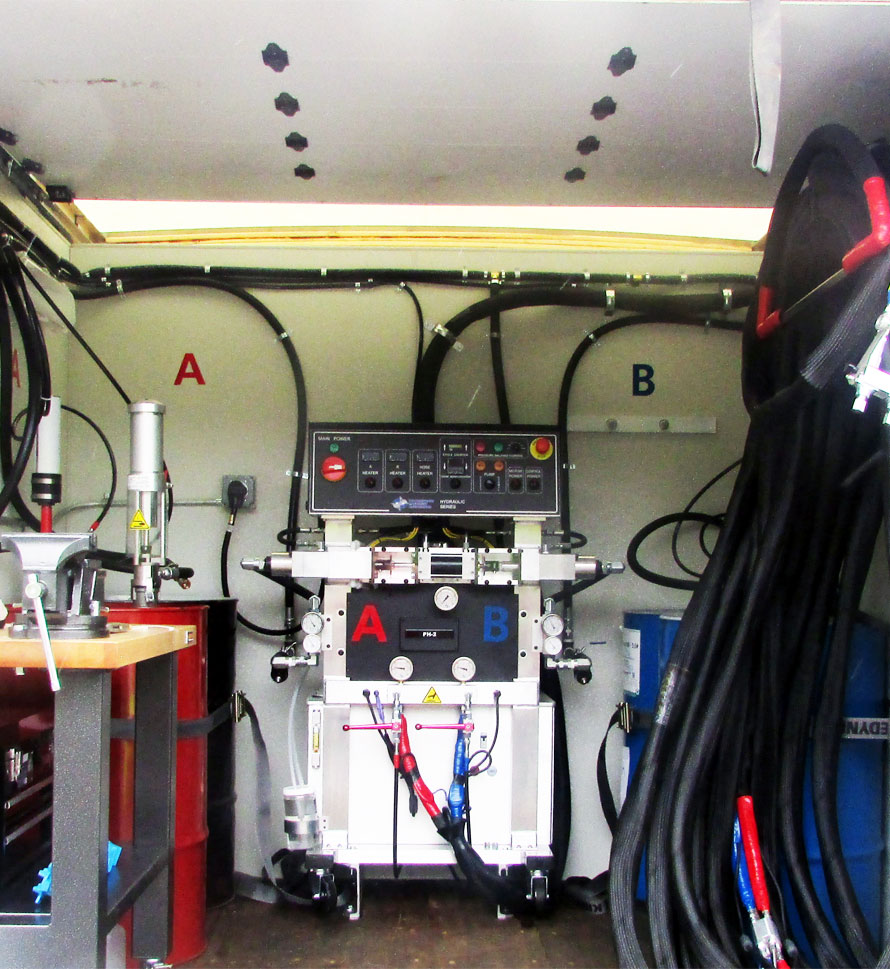
-
Accessories (General)
- 3/4" expendable drive point
- 3/8" and 3/4" soil probes
- Cartridge / Port Connectors and Mixers
- Conduit Seal Kit
- Eco Flush
- F Valve
- Flush Wand
- Grout Needle Kit
- High Pressure Control Valve
- High Pressure Mechanical Ports
- Kick Fast
- Low Pressure Plastic Ports
- PR11 TEA (used w/ PR10 ACLM)
- PR12 APSF catalyst (used w/ PR10 ACLM)
- PR17 LYTX
- Prime Kat
- Prime Plug
- Prime Solvent CGC
- Oakum
- Soil pipe jack
- Stainless Steel Grout Needle & Kit
- StainShield
- Wall Stinger Nozzle
-
Soil Grouting Accessories
- Pipe Coupler
- Pipe Coupler Ferrule
- Buttonhead Coupler - Straight
- Buttonhead Fittings
- SG 3/4" Expendable Drive Tip
- SG 3/4 Rod - 39" Base
- SG 3/4 Rod - 39" Connector
- SG 3/4 Rod - 19.5" Base
- SG 3/4 Rod - 19.5" Connector
- SG 3/4 Fitting - Pipe to Buttonhead
- SG 3/4 Fitting - Buttonhead Fitting
- IL 1/2" Drive Point
- IL 1/2" rod - 39" base
- IL 1/2" rod - 39" connector
- IL 1/2" Fitting Buttonhead
- SG 3/4" Fitting - Buttonhead Coupler
- SG 3/4" Slotted Drive Tip
- SG 3/4 Drive Head
- Modified Pipe Jack Soil Grouting
- SG 3/4 Fitting - Buttonhead Coupler
- Pagani DPM30 Penetrometer
- IL 1/2" Fitting - Buttonhead to Connector Rod
- IL 1/2" Rod to Rod Coupler Fitting
- High Pressure Flow Control Valve
- Buttonhead Coupler - 90°
- Buttonhead Clamp Kit
- DPM30 Penetrometers
- Floor & Joint Repair
- Waterproofing & Secondary Containment
- News
- Downloads
-
Tools
-
Case Studies
Prime Resins takes pride in its ability to find the right solutions to the problems facing our customers. Here are some examples of customers’ successful jobs:
Read More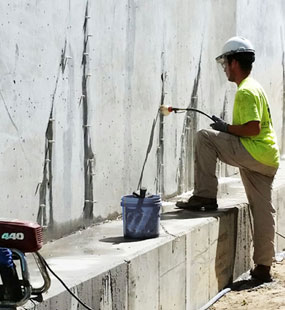
-
Prime Practices
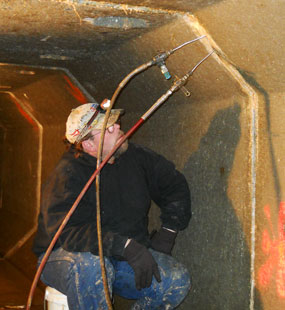
-
Videos

-
Estimating Tools & Info.

-
Why us?
The superior quality of products at a fair price, our consultative approach, and our unparalleled technical support set Prime Resins apart. Learn more about the Prime difference.
Read More
-
Product Types & Typical Uses
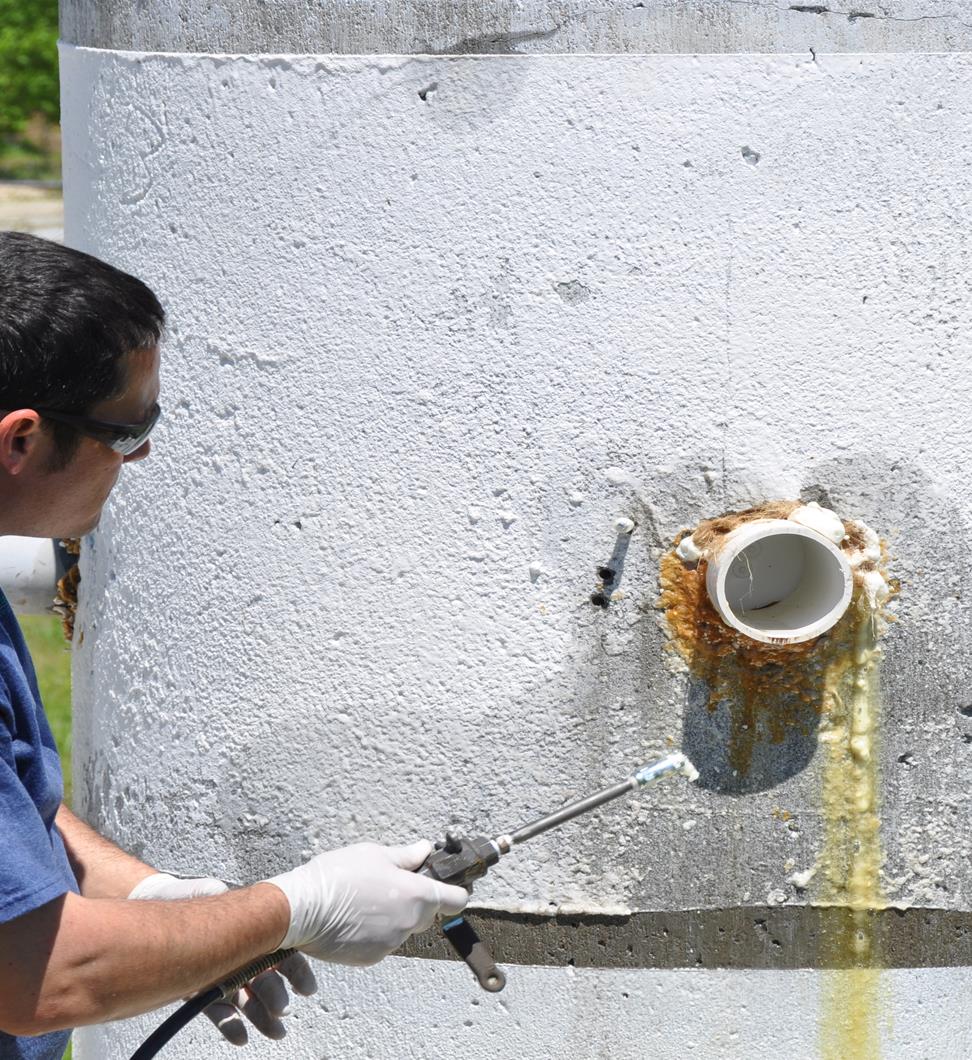
-
Looking for a contractor?
-
Certifications
-
Case Studies
- Contact
Case Studies- Leak Seal Pages
Sealing Leaks With Acrylates: Real-world example
Contractor: SSESCO Inc.
Client: Private property owner in the Bronx, New York
Problem: Sealing leaks in a basement wall and floor is ordinarily a fairly straightforward job. But when the basement is that of a Bronx, New York, 17-story apartment building and the groundwater leaking in through cracks in a wall and the floor is contaminated with heating oil, it’s another story. That’s exactly the scenario faced by specialty contractor SSESCO Inc., hired to seal the leaks by the building’s owner.
Old buried heating oil tanks had leaked, contaminating the soil and the groundwater. That meant that water seeping in and collected by a sump pump was therefore also contaminated, causing extra challenges in treatment. SSESCO needed a product that they could inject behind the wall and beneath the floor that would create a seamless barrier—a curtain wall—that would be chemically resistant and still react properly in the presence of the oil. They also needed a chemical grout that would not create expansive pressure, which might squeeze or crush the old tanks, releasing more oil.
Solution: In August 2014, SSESCO contacted our senior technical consultant, Michael Vargo, who recommended a new type of grout, an acrylate resin. Vargo suggested AR 800 acrylate resin because it performs well in the presence of high groundwater and produces an elastomeric gel that does not expand.
“A polyurethane probably would have worked in the contaminated environment, but we didn’t want that expansive pressure, which is why we recommended the acrylate,” says Vargo.
AR 800 was tested in the lab with samples of the bunker oil—a thick sludge—provided by SSESCO, proving its chemical resistance and ability to polymerize properly with the contaminated environment.
Outcome: Once EPA approval for the repair plan was obtained, the work started in early July 2015 and lasted two and a half weeks. The wall and floor are now dry and leak free. All told, 475 gallons of grout and an equal amount of water were pumped to complete the job.
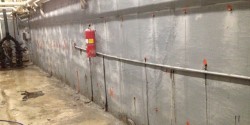
The groundwater seeping in through the drilled port holes was contaminated with old heating oil.



